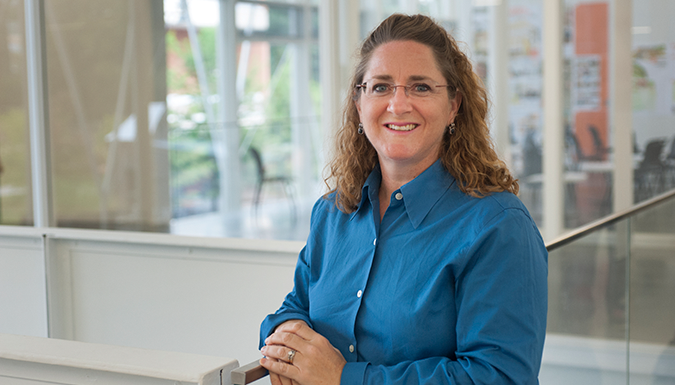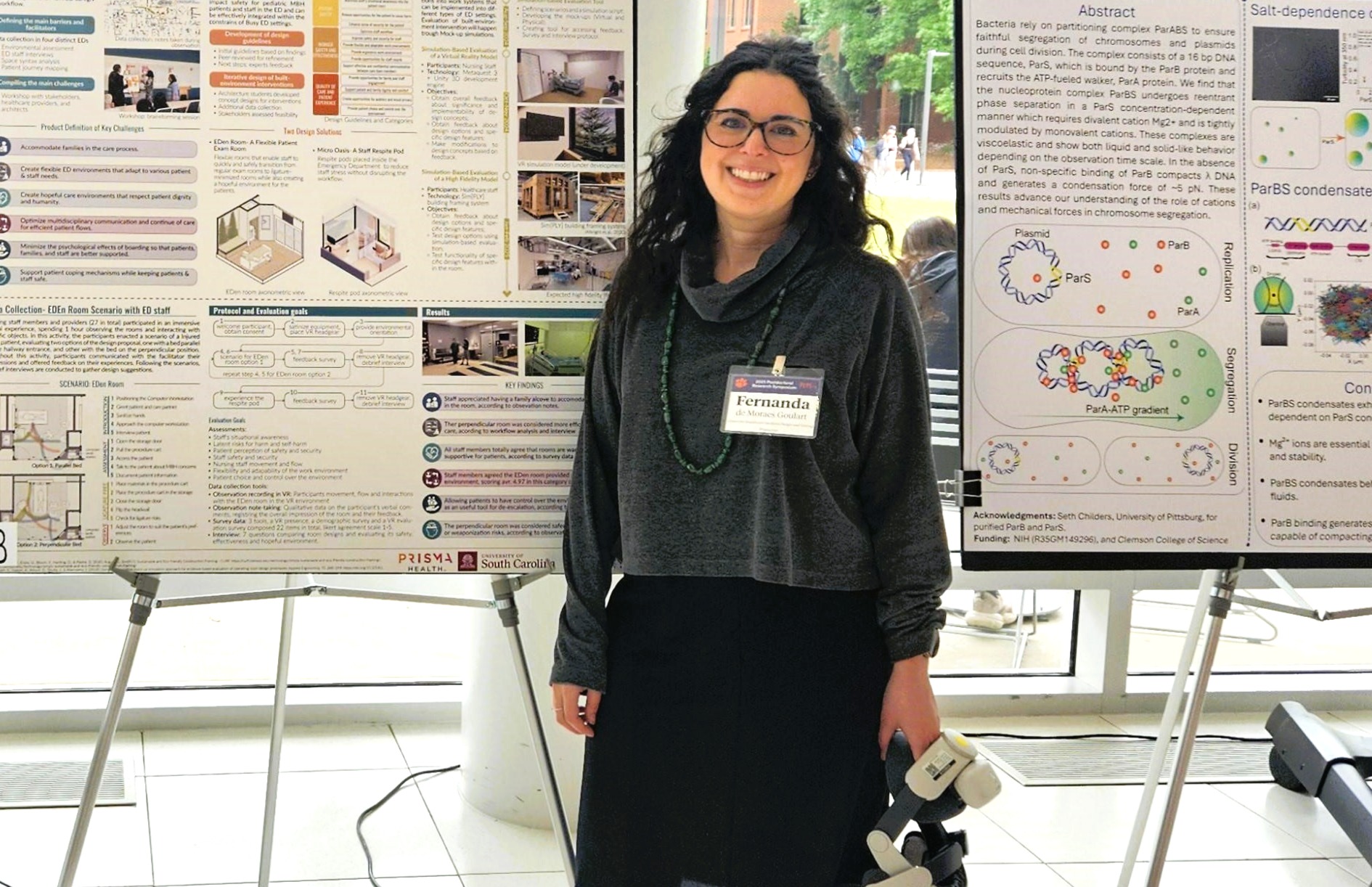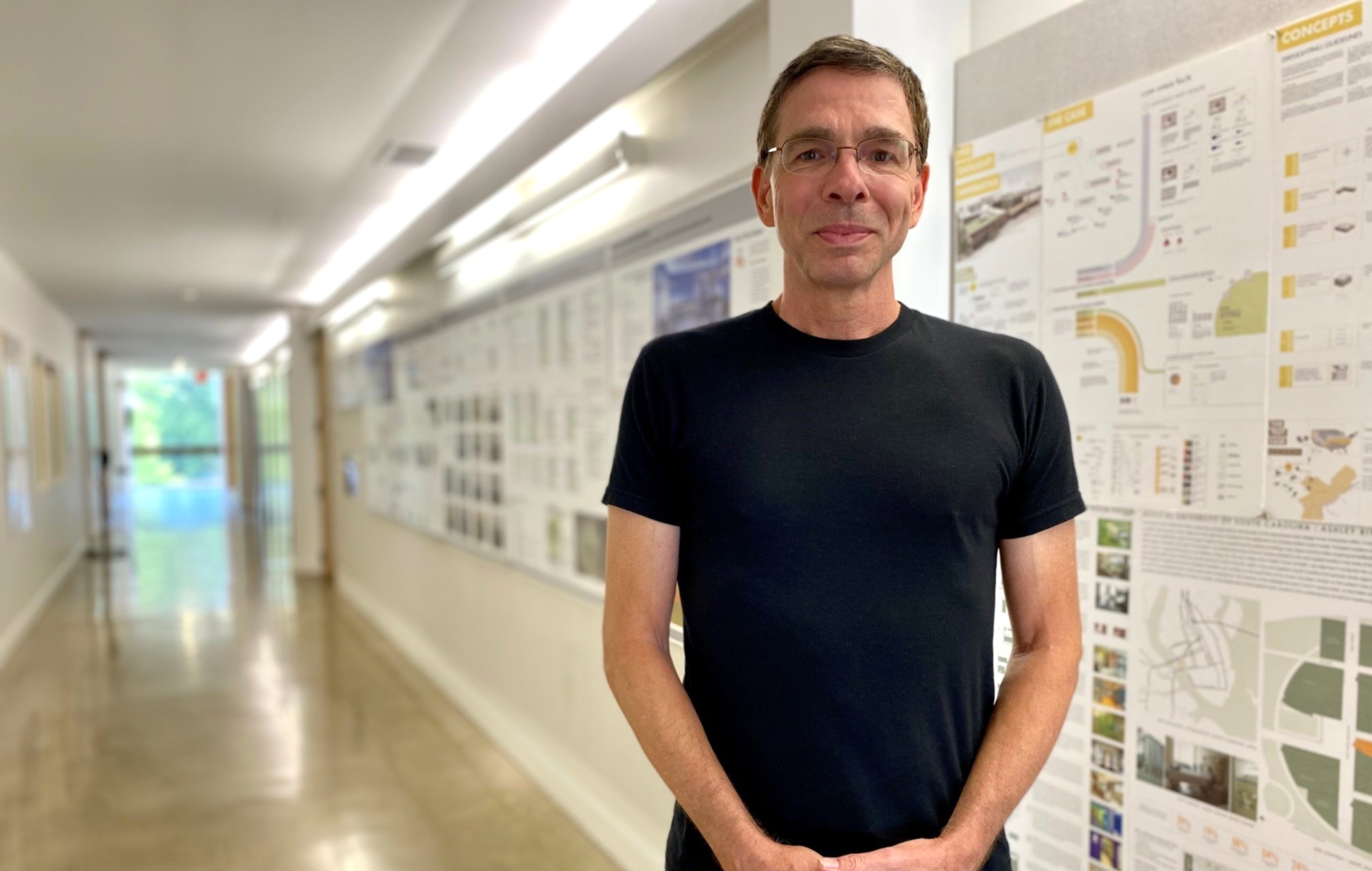
Anjali Joseph, Ph.D., EDAC
SmartState Endowed Chair in Architecture + Health Design and Research
Anjali Joseph, Ph.D., EDAC is the Spartanburg Regional Health System Endowed Chair in Architecture + Health Design and Director of the Center for Health Facilities Design and Testing at Clemson University. Dr. Anjali Joseph is focused on using simulation and prototyping methods to research and test effectiveness of promising design solutions that may impact patient safety in high stress healthcare environments. She has focused her research on multidisciplinary approaches to improving patient safety in healthcare through the development of tools and built environment solutions. She is also interested in understanding the role of the built environment in improving population health outcomes. She is currently leading a multidisciplinary AHRQ funded project to develop a learning lab focused on improving patient safety in the operating room. She led the research activities at The Center for Health Design before joining Clemson. Here, she served as principal investigator on several grants from different organizations such as Robert Wood Johnson Foundation, the Agency for Healthcare Research and Quality, U.S. Green Building Council and the Kresge Foundation. Anjali’s work has been published in many academic journals and magazines. She frequently peer reviews articles for journals. She currently serves on an independent review panel on military medical construction standards for the Defense Health Agency. Anjali obtained her Ph.D. with a focus on Architecture, Culture and Behavior from the Georgia Institute of Technology, master's degree in Architecture from Kansas State University and bachelor’s degree in Architecture from the School of Planning and Architecture in New Delhi, India.

Ken Catchpole Ph.D., BSc, MCIEHF
SmartState Endowed Chair
Dr. Ken Catchpole is a cognitive scientist and human factors practitioner who has spent over a decade studying the influence of task, team, technology and environment on safety and performance in acute care. He began his work at the world-renowned Great Ormond Street Children’s Hospital in London, working with congenital heart surgery teams, followed by six years as a senior research fellow at the University of Oxford extending this research and quality improvement to vascular, general, and orthopedic surgery, utilizing techniques from other industries such as aviation, production, and formula one motor racing.

David Allison, FAIA, FACHA
Professor and Director of Graduate Studies in Architecture + Health
David Allison FAIA, FACHA is an Alumni Distinguished Professor and Director of Clemson’s Graduate Program in Architecture + Health. He also holds an appointment as a Faculty Scholar in the Clemson University School of Health Research. His teaching, research and scholarship involves the study of relationships between health, healthcare and the built environment. His scholarly focus is centered on healthy community planning and design, design prototyping and research related to the design of healthcare environments. Professor Allison is a registered architect in California, South Carolina, and North Carolina, and is NCARB certified. David is a Fellow of the American Institute of Architects, as well as a Fellow and founding member of the American College of Healthcare Architects. He currently serves as a trustee for the Academy of Architecture for Health Foundation and is also an active member of the AIA Academy of Architecture for Health where he served a three-year term as an AIA/AAH National Advisory Board member. He was selected in 2007 as one of “Twenty Making a Difference” and identified again in 2009, 2010 and 2012 by Healthcare Design Magazine as one of the most influential people in healthcare design. Design Intelligence Magazine named him one of the nation's 30 Most Admired Design Educators in 2013-14.

Dina Battisto, Ph.D.
Associate Professor in Architecture + Health
Dina Battisto is Associate Professor in the Richard A. McMahan School of Architecture and also leads the Built Environment and Health Concentration in the interdisciplinary Planning, Design and Built Environment Ph.D. Program in the College of Architecture, Art and Construction. She earned a B.Arch from the University of Tennessee, a M.Arch from Clemson University, and M.S. and Ph.D. degrees from the University of Michigan. Her primary research areas include healthcare facility design, facility performance evaluations, sustainable design and aging in place. Since 2005, Dr. Battisto has been awarded as principal investigator over $1 million dollars of externally sponsored research. She is highly recruited for national and international conferences, actively publishes in scholarly journals and has won multiple national healthcare design awards. Dr. Battisto also serves as the Chair of the AIA?s Academy of Architecture for Health Foundation Grants Committee. In 2008, she was peer-nominated and selected by HEALTHCARE DESIGN Magazine as one of the top twenty in the nation advancing the future of healthcare design

Lyndsey Deaton, Ph.D., RA, AICP, PMP, LEED GA
Assistant Professor in Architecture + Health
Lyndsey Deaton, Ph.D., RA, AICP, PMP, LEED GA is an Assistant Professor of Architecture in the Architecture + Health NAAB-accredited graduate program at Clemson University. Her work investigates and challenges concepts of health across a wide range of venues from the design of healthcare facilities to the role of equitable planning participation in community health. As a licensed and practicing architect, she is interested in how urban design impacts community health, especially for underserved areas: How is the built environment a vehicle for exacerbating social inequalities and how can it be a solution? How does the human context of design reflect and inscribe social attitudes in a city? How can architecture advance public health, social sustainability, and urban resilience? In 2021, the University of Oregon awarded Lyndsey a Doctor of Philosophy in Architecture for her dissertation titled, No Place to Play? Studies of How Adolescents Use Public Space in Dispossessed Communities. As a peer-reviewed measure of significance, her dissertation received the Environmental Design Research Association’s Great Places Award for Research (2021) and the Architecture Research Center’s Consortium King Medal for Research Excellence (2020).

Fernanda de Moraes Goulart, Ph.D.
CU Post-Doctoral Fellow
Fernanda de Moraes Goulart, Ph.D. is an architect and urbanist, holding a master's degree in environmental psychology and a doctoral degree in architecture technology. Her research primarily focuses on people-environment relations and the quality of the built environment. She has experience working in multidisciplinary research projects in various fields, such as environments for (mental) health, urban mobility, place-making, and co-design. She has practical experience in Architecture and Design. She has worked as an adjunct researcher at the Environmental Psychology Laboratory at the University of Brasilia and the Laboratory for Quality and Performance of the Built Environment at the University of São Paulo. Born in Brazil and raised in different cities, she is enthusiastic about exploring new natural and cultural environments through long strolls, gastronomy, and heart-to-heart conversations.

Devi Soman, 2025 PHD, ARCHITECTURE + HEALTH
Post-Doctoral Fellow
Devi Soman is a post-doctoral fellow at the Richard A. McMahan School of Architecture, Clemson University. She recently completed her Ph.D. in the Design and Built Environment (Architecture + Health) program at Clemson University. Her personal and professional experience led to her intrigue in Healthcare Design. She has worked as a healthcare architect in India since graduating from undergraduate (2010) and graduate (2012) programs at I.E.S. College of Architecture, Mumbai. She also secured a post graduate diploma in Hospital and Health Care Management from Symbiosis International University in 2013 and the EDAC certification from the Centre for Health Design in 2020. Soman's interest in healthcare design continues to propel her journey within the academic realm, for which she recently received Clemson University's 2025 Frankie O' Felder Award and the 2024 Vera S. Paster Award from the Global Alliance for Behavioral Health. Her doctoral dissertation explored maternal care environments and was supported by the 2023 American Association of Birth Centers (AABC) Research grant and the Center for Health Design's 2023 Joseph G. Sprague New Investigator Award.

James Lyndon McCracken, MA
Project Coordinator – Center for Health Facilities Design and Testing
Mr. McCracken is the Project Coordinator for the Center for Health Facilities Design and Testing. He served as a Program Manager, Project Coordinator, Research Manager, and Project Director at West Virginia University and the University of South Carolina prior to joining the Clemson team. Mr. McCracken has extensive experience coordinating large national multidisciplinary projects. He is interested in human factors and how people interact with various healthcare environments.

